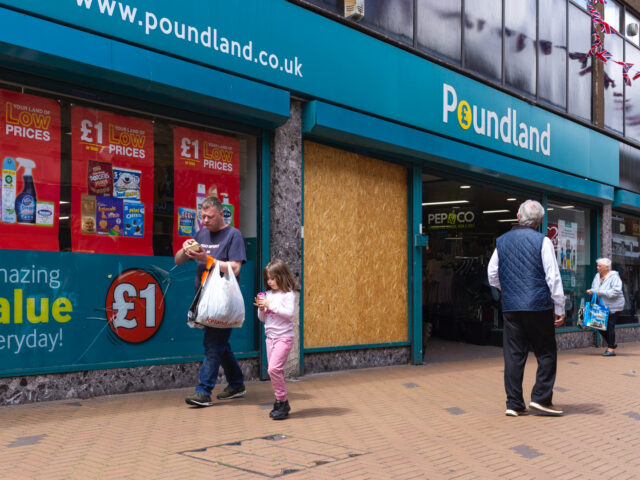One in five British households now has a “negative disposable income” in which they are £60 short of meeting their essential needs such as rent, energy, food and transport.
Data compiled in the monthly Asda Income Tracker by the Centre for Business and Economic Research (Cber) has shown that the cost of living crisis, which has seen costs rise by 11 per cent in the year until June, has resulted in a record 18 per cent decline in household disposable income.
The decline means households now have £43.95 per week or £175.80 less per month to spend on non-essential items compared to last year, with disposable income falling to just £200 per month after taxes and other essential payments were made. June was the eighth month in a row to see a decline in disposable income.
More concerningly, the bottom 20 per cent of households now have a negative disposable income of £60, meaning that their income does not cover the basic essentials of life.
Commenting on the cost of living crunch for families, the head of payments at Nationwide building society, Mark Nalder told The Guardian: “Following a peak in spending during May, our data suggests households have started to cut back across the board and where they can. This is happening as we enter the summer period where customers will want to enjoy themselves, so it will be interesting to see how these often conflicting interests are balanced.
“As we head into the holiday season, we expect budgeting to continue being a feature as the nation prepares for even higher costs with inflation continuing to climb and the energy price cap rising again this autumn.”
Supermarket Prices Rise at Fastest Rate in a Decade, as Inflation Grips Britainhttps://t.co/KYCNsO7ww2
— Breitbart London (@BreitbartLondon) March 30, 2022
The economic squeeze comes as real wages (excluding bonuses) fell at the fastest rate since records began in 2000, falling by 3.7 per cent in May.
In addition to seeing their pay slashed, Britons have also been hit by soaring costs at the supermarket, with the average family seeing their grocery bills increase by £454 on the year, as food inflation rose to its highest level since the financial crisis of 2008, with foodstuffs rising by 9.9 per cent in price this month.
There is currently a political debate unfurling over what to do about the growing economic crisis in Britain, with the two candidates vying to replace Boris Johnson as leader of the Tory Party and therefore as prime minister, former Chancellor Rishi Sunak and Foreign Secretary Liz Truss offering diametrically opposed answers to the problem.
Truss has argued in favour of lowering taxes immediately in order to alleviate the pressure on people trying to make ends meet, while Mr Sunak has said that the tax rate — which hit a seventy-year high during his tenure as the head of the Treasury — should be maintained until inflation is brought back down, arguing that increasing people’s discretionary spending ability will further exacerbate inflation.
Real wages saw their sharpest decline on record in Britain when considering inflation, the Office for National Statistics revealed on Tuesday. https://t.co/bMOXqS8QaM
— Breitbart News (@BreitbartNews) July 19, 2022
Follow Kurt Zindulka on Twitter here @KurtZindulka

COMMENTS
Please let us know if you're having issues with commenting.